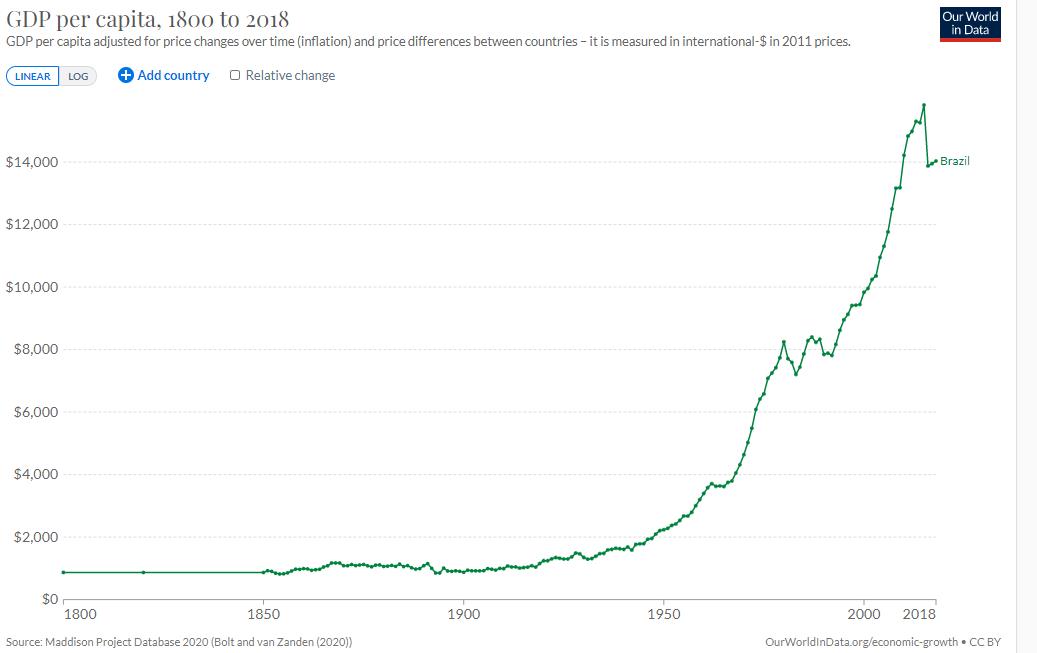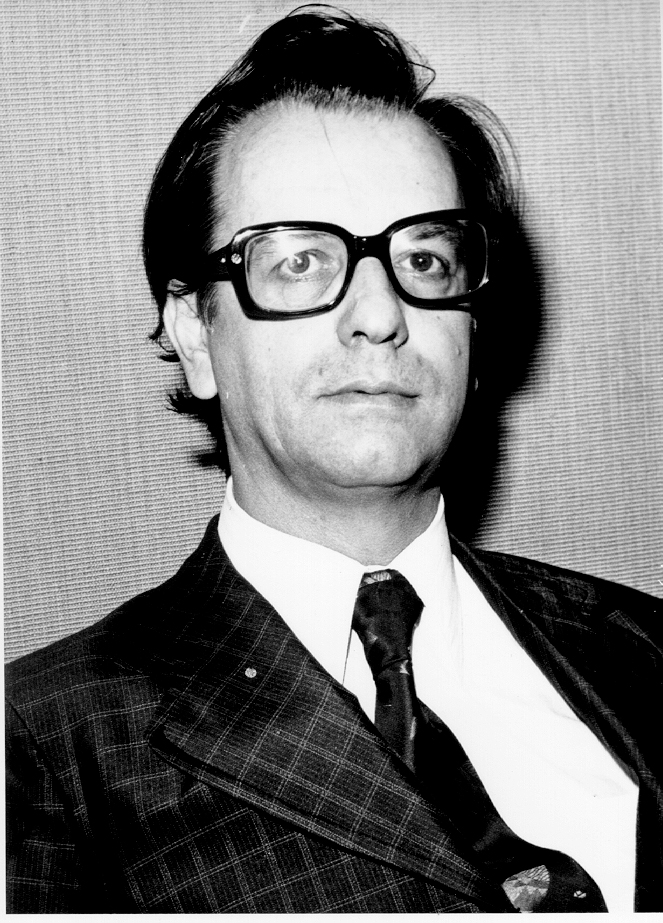|
Timeline Of Brazilian Economic Stabilization Plans
The following is a timeline of the Brazilian economy, economic stabilization plans in the "new Republic" (post-military dictatorship) era, a period characterized by intense inflation of the local currency, exceeding 2,700% in the period of 1989 to 1990. This period was marked by intense economic experimentation (including many forms of economic heterodox shocks) and, as a whole, comprises a unique case study on Macroeconomy, macroeconomics. * February 28, 1986: Plano Cruzado (President of Brazil, president: José Sarney, finance minister: Dilson Funaro) * November 21, 1986: Plano Cruzado II (president: José Sarney, finance minister: Dilson Funaro) * June 12, 1987: Plano Bresser (president: José Sarney, finance minister: Luiz Carlos Bresser-Pereira) * January 6, 1988: Política Feijão com Arroz (president: José Sarney, finance minister: Maílson da Nóbrega) * January 15, 1989: Plano Verão (president: José Sarney, finance minister: Maílson da Nóbrega) * March 15, 1990: Plan ... [...More Info...] [...Related Items...] OR: [Wikipedia] [Google] [Baidu] |
Timeline
A timeline is a display of a list of events in chronological order. It is typically a graphic design showing a long bar labelled with dates paralleling it, and usually contemporaneous events. Timelines can use any suitable scale representing time, suiting the subject and data; many use a linear scale, in which a unit of distance is equal to a set amount of time. This timescale is dependent on the events in the timeline. A timeline of evolution can be over millions of years, whereas a timeline for the day of the September 11 attacks can take place over minutes, and that of an explosion over milliseconds. While many timelines use a linear timescale—especially where very large or small timespans are relevant -- logarithmic timelines entail a logarithmic scale of time; some "hurry up and wait" chronologies are depicted with zoom lens metaphors. History Time and space, particularly the line, are intertwined concepts in human thought. The line is ubiquitous in clocks in the ... [...More Info...] [...Related Items...] OR: [Wikipedia] [Google] [Baidu] |
Economic History Of Brazil
The economic history of Brazil covers various economic events and traces the changes in the Brazilian economy over the course of the history of Brazil. Portugal, which first colonized the area in the 16th century, enforced a colonial pact with Brazil, an imperial mercantile policy, which drove development for the subsequent three centuries.Charles C. Mueller and Werner Baer. "The economy". In . Independence was achieved in 1822. Slavery was fully abolished in 1888. Important structural transformations began in the 1930s, when important steps were taken to change Brazil into a modern, industrialized economy. A socioeconomic transformation took place rapidly after World War II. In the 1940s, only 31.3% of Brazil's 41.2 million inhabitants resided in towns and cities; by 1991, of the country's 146.9 million inhabitants 75.5% lived in cities, and Brazil had two of the world's largest metropolitan centers: São Paulo and Rio de Janeiro. The share of the primary sector in th ... [...More Info...] [...Related Items...] OR: [Wikipedia] [Google] [Baidu] |
Economy Of Brazil
The economy of Brazil is historically the largest in Latin America and the Southern Hemisphere in nominal terms. The Brazilian economy is the third largest in the Americas. The economy is a middle income developing mixed economy. In 2022, according to International Monetary Fund (IMF), Brazil has the 12th largest gross domestic product expenditure (GDP) and has the 8th largest purchasing power parity. In 2022, according to International Monetary Fund (IMF), Brazilian nominal GDP was US$1.833 trillion, the country has a long history of being among the ten largest economies in the world. The GDP per capita was US$8,570 per inhabitant. The country is rich in natural resources. From 2000 to 2012, Brazil was one of the fastest-growing major economies in the world, with an average annual GDP growth rate of over 5%. Its GDP surpassed that of the United Kingdom in 2012, temporarily making Brazil the world's sixth-largest economy. However, Brazil's economic growth decelerated in 2013 ... [...More Info...] [...Related Items...] OR: [Wikipedia] [Google] [Baidu] |
History Of Brazil (1985-present)
Before the arrival of the Europeans, the lands that now constitute Brazil were occupied, fought over and settled by diverse tribes. Thus, the History of Brazil begins with the indigenous people in Brazil. The Portuguese arrived to the land that would become Brazil on April 22, 1500, commanded by Pedro Álvares Cabral a Portuguese explorer on his way to India under the sponsorship of the Kingdom of Portugal and the support of the Catholic Church. From the 16th to the early 19th century, Brazil was created and expanded as a colony, kingdom and an integral part of the Portuguese Empire. Brazil was briefly named "Land of the Holy Cross" by Portuguese explorers and crusaders before being named "Land of Brazil" by the Brazilian-Portuguese settlers and merchants dealing with Brazilwood. The country expanded south along the coast and west along the Amazon and other inland rivers from the original 15 donatary captaincy colonies established on the northeast Atlantic coast east of the Tordesi ... [...More Info...] [...Related Items...] OR: [Wikipedia] [Google] [Baidu] |
List Of Economic Crises In Brazil
The economy of Brazil has been characterized by instability, and exceptionally unstable periods have affected a number of Brazilian states before and after the country's independence in 1822. Before independence After independence See also * Timeline of Brazilian economic stabilization plans * Economic history of Brazil The economic history of Brazil covers various economic events and traces the changes in the Brazilian economy over the course of the history of Brazil. Portugal, which first colonized the area in the 16th century, enforced a colonial pact with ... References {{DEFAULTSORT:Brazil Economic crises in Brazil Brazil economy-related lists ... [...More Info...] [...Related Items...] OR: [Wikipedia] [Google] [Baidu] |
Fernando Henrique Cardoso
Fernando Henrique Cardoso (; born 18 June 1931), also known by his initials FHC (), is a Brazilian sociologist, professor and politician who served as the 34th president of Brazil from 1 January 1995 to 31 December 2002. He was the first Brazilian president to be reelected for a subsequent term. An accomplished scholar of dependency theory noted for his research on slavery and political theory, Cardoso has earned many honors including the Prince of Asturias Award for International Cooperation (2000) and the Kluge Prize from the US Library of Congress (2012). Cardoso was the 10th president of International Sociological Association (1982–1986). Personal and professional life Cardoso descends from wealthy Portuguese immigrants. Some were politicians during the Empire of Brazil. He is also of black African descent, through a black great-great-grandmother and a mulatto great-grandmother. Cardoso described himself as "slightly mulatto" and allegedly said he has "''a foot in the k ... [...More Info...] [...Related Items...] OR: [Wikipedia] [Google] [Baidu] |
Itamar Franco
Itamar Augusto Cautiero Franco (; 28 June 19302 July 2011) was a Brazilian politician who served as the 33rd president of Brazil from 29 December 1992 to 31 December 1994. Previously, he was the 21st vice president of Brazil from 1990 until the resignation of President Fernando Collor de Mello. During his long political career Franco also served as Senator, Mayor, Ambassador and Governor. At the time of his death he was a senator from Minas Gerais, having won the seat in the 2010 election. Early life and family background Franco was born prematurely at sea, aboard a ship traveling between Salvador and Rio de Janeiro, being registered in Salvador. On his father's side he was of partial German descent (the Stiebler family from Minas Gerais), while on the mother's side he was of Italian descent, with both of his maternal grandparents having emigrated to Brazil from Italy. His mother's name was "Itália", which means "Italy" in Portuguese. Franco's father died before his birth. H ... [...More Info...] [...Related Items...] OR: [Wikipedia] [Google] [Baidu] |
Plano Real
The Plano Real ("Real Plan",The word ''real'' in Portuguese could be translated either to ''real'' or ''royal'' in English. The name of the plan comes from the name of the currency which was chosen to give the idea of a stable and credible purchasing power. in English) was a set of measures taken to stabilize the Brazilian economy in 1994, during the presidency of Itamar Franco. Its architects were led by the Minister of Finance and succeeding president Fernando Henrique Cardoso. The Plano Real was based on an analysis of the root causes of hyperinflation in the '' New Republic'' of Brazil, that concluded that there was both an issue of fiscal policy and severe, widespread inertial inflation. The Plano Real intended to stabilize the domestic currency in nominal terms after a string of failed plans to control inflation. Background According to economists, one of the causes of inflation in Brazil was the inertial inflation phenomenon. Prices were adjusted on a daily basis accord ... [...More Info...] [...Related Items...] OR: [Wikipedia] [Google] [Baidu] |
Zélia Cardoso De Mello
Zélia Maria Cardoso de Mello (born September 20, 1953, in São Paulo) served as Brazil's Minister of Economy from 1990 to 1991 under Fernando Collor de Mello. She was later married to Brazilian comedian Chico Anysio, with whom she has two children, Rodrigo and Victoria. The couple divorced in 1998. Zélia Cardoso de Mello worked in the academic, public and private sectors in Brazil. She graduated from FEA-USP where she also got her PhD degree in economics. She was a professor at the University of São Paulo for almost 20 years. Her political career began in 1986 when Dilson Funaro, the Minister of Finance of Brazil, invited her to join his ''Economic Advisory Team'' as Director of the National Treasure Dept. In 1990 Cardoso de Mello was appointed the National Minister of Economy, Finance and Planning of Brazil under president Fernando Collor de Mello. After significant criticism, she resigned this position in May 1991. In 1991, she released a biography, "Zelia, A Passion". ... [...More Info...] [...Related Items...] OR: [Wikipedia] [Google] [Baidu] |
Fernando Collor De Mello
Fernando Affonso Collor de Mello (; born 12 August 1949) is a Brazilian politician who served as the 32nd president of Brazil from 1990 to 1992, when he resigned in a failed attempt to stop his impeachment trial by the Brazilian Senate. Collor was the first President democratically elected after the end of the Brazilian military government. He became the youngest president in Brazilian history, taking office at the age of 40. After he resigned from the presidency, the impeachment trial on charges of corruption continued. Collor was found guilty by the Senate and disqualified from holding elected office for eight years (1992–2000). He was later acquitted of ordinary criminal charges in his judicial trial before Brazil's Supreme Federal Court, for lack of valid evidence. Fernando Collor was born into a political family. He is the son of the former Senator and Leda Collor (daughter of former Labour Minister Lindolfo Collor, led by his father, former governor of Alagoas and ... [...More Info...] [...Related Items...] OR: [Wikipedia] [Google] [Baidu] |
Institute Of Applied Economic Research
The Institute of Applied Economic Research (Portuguese: ''Instituto de Pesquisa Econômica Aplicada'', Ipea) is a Brazilian government-led research organization dedicated to generation of macroeconomical, sectorial and thematic studies in order to base government planning and policy making. It was created as EPEA in 1964 with as its first director Joao Paulo dos Reis Velloso, who later became Minister of Planning. It received support in its early years from the so-called Berkeley Group under the leadership of Albert Fishlow. As of January 2005, it had about 560 employees. It maintains libraries in Brasilia and Rio de Janeiro Rio de Janeiro ( , , ; literally 'River of January'), or simply Rio, is the capital of the state of the same name, Brazil's third-most populous state, and the second-most populous city in Brazil, after São Paulo. Listed by the GaWC as a b .... References External linksOfficial Website [...More Info...] [...Related Items...] OR: [Wikipedia] [Google] [Baidu] |






.jpg)